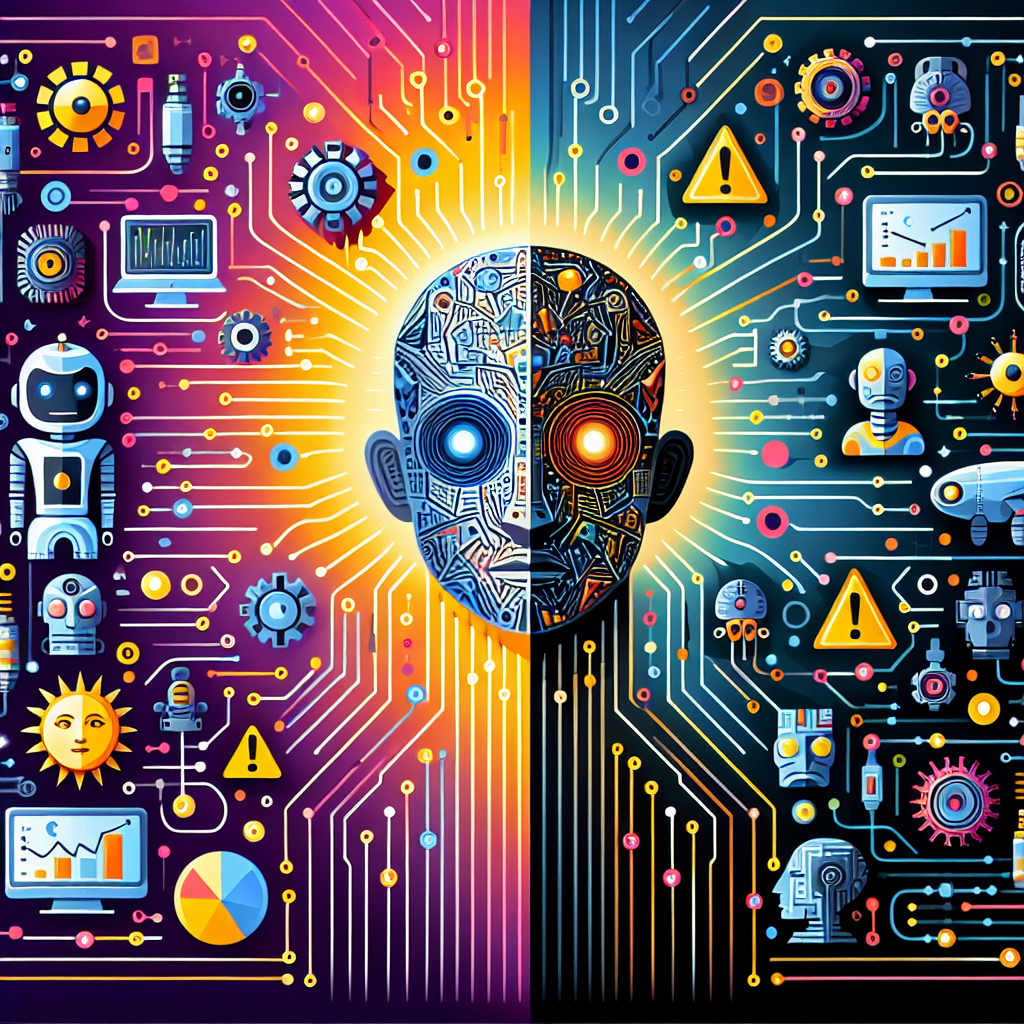Artificial intelligence (AI) has become an integral part of our daily lives, from powering virtual assistants like Siri and Alexa to driving autonomous vehicles. While AI has the potential to revolutionize industries and improve efficiency, there is also a dark side to this technology that raises concerns about its impact on society. In this article, we will explore the risks and concerns associated with AI, as well as address some frequently asked questions on the topic.
Risks and Concerns of Artificial Intelligence:
1. Job Displacement:
One of the most pressing concerns surrounding AI is the potential for job displacement. As AI becomes more advanced, it has the ability to automate tasks that were previously performed by humans, leading to job losses in various industries. For example, self-driving cars could replace truck drivers, and chatbots could replace customer service representatives. This could result in widespread unemployment and economic disruption.
2. Bias and Discrimination:
AI systems are only as good as the data they are trained on, and if that data is biased, it can lead to discriminatory outcomes. For example, facial recognition systems have been shown to have higher error rates for people of color, leading to concerns about racial bias in AI algorithms. This can have serious consequences, such as in the criminal justice system where AI is used to make decisions about bail, sentencing, and parole.
3. Privacy and Surveillance:
AI technologies are capable of collecting and analyzing vast amounts of data about individuals, raising concerns about privacy and surveillance. For example, facial recognition systems can track people’s movements in public spaces, and AI-powered algorithms can analyze social media posts to predict behavior. This can lead to a loss of privacy and autonomy, as individuals may not be aware of how their data is being used and analyzed.
4. Autonomous Weapons:
The development of autonomous weapons powered by AI has raised ethical concerns about the potential for these weapons to make life-and-death decisions without human intervention. These weapons could be used in warfare to target and kill individuals based on algorithms and data analysis, raising questions about accountability and the ethics of autonomous decision-making.
5. Lack of Transparency and Accountability:
AI algorithms are often complex and opaque, making it difficult to understand how they arrive at their decisions. This lack of transparency can lead to a lack of accountability, as it may be unclear who is responsible for the outcomes of AI systems. This can be particularly concerning in high-stakes applications such as healthcare, finance, and criminal justice.
Frequently Asked Questions:
Q: Can AI systems be biased?
A: Yes, AI systems can be biased if they are trained on biased data. For example, if a facial recognition system is trained on a dataset that is predominantly white, it may have difficulty accurately identifying people of color. It is important to carefully consider the data used to train AI systems to mitigate bias.
Q: How can we address the risks of AI?
A: Addressing the risks of AI requires a multi-faceted approach that includes transparency, accountability, and ethical considerations. Companies and organizations that develop AI systems should be transparent about how their algorithms work and how they make decisions. There should also be mechanisms in place to hold individuals and organizations accountable for the outcomes of AI systems. Additionally, ethical guidelines and regulations can help ensure that AI is used in a responsible and ethical manner.
Q: What are the ethical considerations of AI?
A: Ethical considerations of AI include issues such as privacy, bias, accountability, and transparency. AI systems should be designed and deployed in a way that respects individuals’ privacy and autonomy, avoids discriminatory outcomes, and ensures that decisions made by AI systems are transparent and accountable.
Q: What is the role of government in regulating AI?
A: The role of government in regulating AI is to ensure that AI technologies are developed and deployed in a responsible and ethical manner. This may involve creating regulations and guidelines for the use of AI in industries such as healthcare, finance, and criminal justice, as well as investing in research and development to address the risks and concerns associated with AI.
In conclusion, while artificial intelligence has the potential to bring about significant advancements and improvements in various industries, there are also risks and concerns that need to be addressed. From job displacement to bias and discrimination, privacy and surveillance, autonomous weapons, and lack of transparency and accountability, it is clear that there is a dark side to AI that requires careful consideration and ethical oversight. By addressing these risks and concerns through transparency, accountability, and ethical guidelines, we can ensure that AI is developed and deployed in a responsible and ethical manner that benefits society as a whole.

